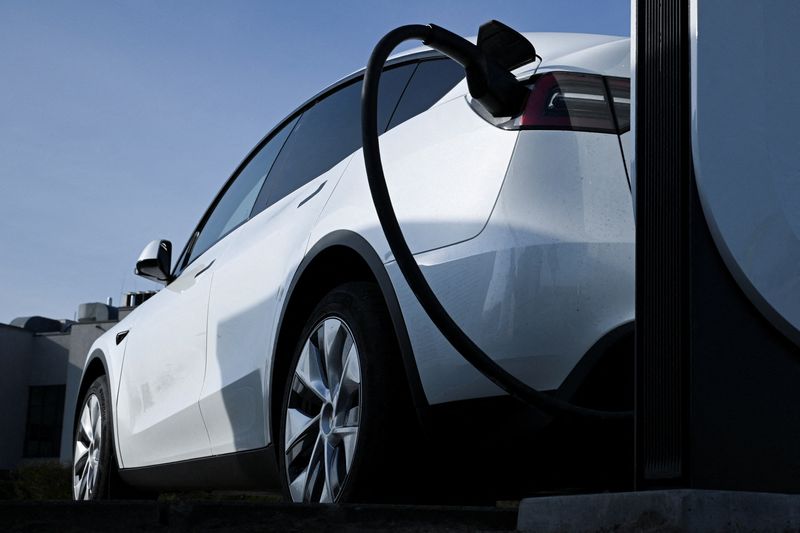Park Ha Biological Technology stock rises on upcoming ticker symbol change
Investing.com -- Tesla (NASDAQ:TSLA) is due to report its fourth-quarter 2024 financial results on Jan. 29 after the market closing bell.
Morgan Stanley (NYSE:MS) analysts believe buy-side expectations for the quarterly gross auto margin, excluding regulatory credits, is in the 15% range. They also expect that Tesla's free cash flow (FCF) will benefit from inventory reduction in the fourth quarter.
“More attention will be paid to comments on the outlook including a reiteration (or not) of the 20 to 30% FY24 delivery growth target, Model Y ‘Juniper’ ramp, FSD rate of change, AI infrastructure expansion, Cybercab deployment targets, Optimus milestones, and a potential deep-dive ‘AI Day’,” analysts led by Adam Jonas said in a Friday note.
Tesla's potential challenges include opposition to electric vehicle (EV) incentives, which could impact volume growth expectations for fiscal year 2025. Morgan Stanley notes that buy-side expectations are now closer to a 10% growth rate rather than 20%, citing increased competition in China, a slowdown in Cybertruck volumes, and the possibility of EV tax incentives being eliminated.
As a result, the firm has reduced its forecast for battery electric vehicle (BEV) market penetration in fiscal year 2025 to 8.5% from the previous 9%.
The bank also addressed the growing interest in humanoid robots, acknowledging the influx of client inquiries following Nvidia (NASDAQ:NVDA) CEO Jensen Huang's presentation at the Consumer Electronics Show earlier this month.
Although Morgan Stanley views Tesla as an 'embodied AI ETF' due to its strategic positioning in AI robotics, it does not currently assign any value to Tesla for embodied AI in its $430 price target or $800 bull case.
In the note, analysts also emphasized the importance of data collection through various form factors, including Tesla's fleet of vehicles and AI infrastructure. They believe that as Tesla expands its data collection capabilities, the narrative surrounding the company and the type of investors interested in the stock will evolve significantly.
Lastly, the firm touched upon the potential impact of the Trump Administration's policies on the EV industry, likening it to the historical Monroe Doctrine. The use of tariffs and other measures could accelerate the onshoring of AI technology and create a more secure supply chain.
“Much as the Monroe Doctrine was a US policy in opposition of European colonization in the W. Hemisphere, we expect to see the Trump Administration’s EV and AV policies encouraging new domestic supply of critical technologies and the supporting manufacturing and supply base,” analysts said.
“In our view, Tesla's role in helping to 'fill the void' of next gen manufacturing and supply chain will be an increasingly consequential driver of growth and shareholder value, in our opinion,” they concluded.
